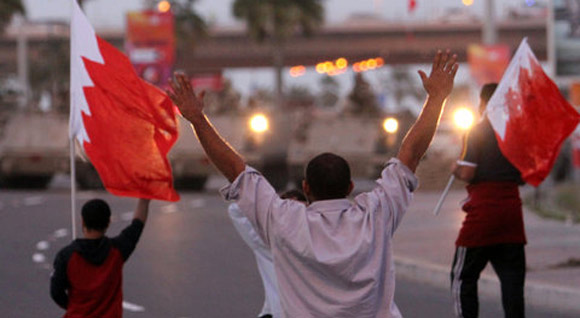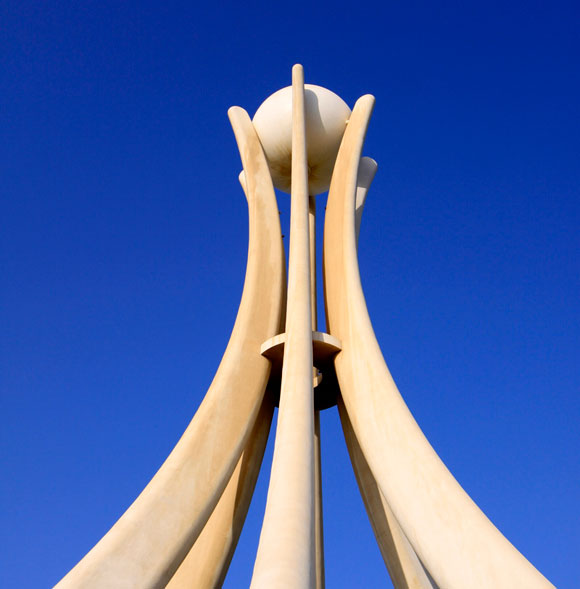Riots in Bahrain: The Problem of Two Narratives
Bahrain Top Stories
Understaning Bahrain: The Problem of Two Narratives
On the one side is the narrative of the protestors who claim that they are peacefully demonstrating for an end to discrimination against the majority Shi’a by the minority Sunnis

The Problem of Two Narratives
On the one side is the narrative of the protestors who claim that they are peacefully demonstrating for an end to discrimination against the majority Shi’a by the minority Sunnis
Through all this, it has become increasingly difficult to know exactly what happened, why it is happening, and what is really going on. Essentially, two very different narratives have dominated the news coming out of Bahrain.
|
loading the player….
|
On the one side is the narrative of the protestors who claim that they are peacefully demonstrating for an end to discrimination against the majority Shi’a by the minority Sunnis—who control both the government and largest part of the economy. 
The Shi’ites are demanding changes to the constitution and the political process that would allow them to participate fully in running the economic and political life of the nation. This narrative has been widely covered by the international media.
To be complete, the protestors’ narrative is also supplemented by grisly stories of repression, brutality, torture and human rights violations that have arisen since the forcible removal of demonstrators from Pearl Roundabout—the “Tahrir Square” of Bahrain’s demonstrations—plus the systematic firing and removal of demonstrators from their jobs, not to mention the claims of arbitrary arrest and police scouring of Facebook pages to identify protestors for retribution.
On the other side is the narrative of the government and most of the economic leaders of Bahrain to the effect that the demonstrations are being orchestrated by Iran and other foreign interests with the goal of destabilizing the country and increasing the influence of foreign entities.
|
loading the player….
|
This narrative appears to be supported by the other governments of the GCC (Saudi Arabia, Qatar, the United Arab Emirates, Oman, Dubai, and Kuwait).
All of this makes for a heady brew of serious charges and countercharges. What is clear at the present time is that the government has largely restored order, asserted its dominance, and is digging in.
What is also clear is that the United States, the United Nations, the EU, and major European states (who are normally outspoken champions of Human Rights) have not chosen sides, as they have in many other uprisings in the Middle East and North Africa, such as, most recently, Libya and Syria, or as they did earlier with Tunisia and Egypt.
Whether this implies an objective stance toward the facts, or merely the crassest big-power political considerations, is not easily assessed. At this time, it appears that calm has been restored, and Bahrain is seeking to go back to business as usual.
|
loading the player….
|
It is not the purpose of this report to take sides in this war of claims, counterclaims, and narratives, but to report on the present business and economic conditions prevailing in Bahrain, and the outlook for political stability and economic growth as seen by the major business leaders of the nation.